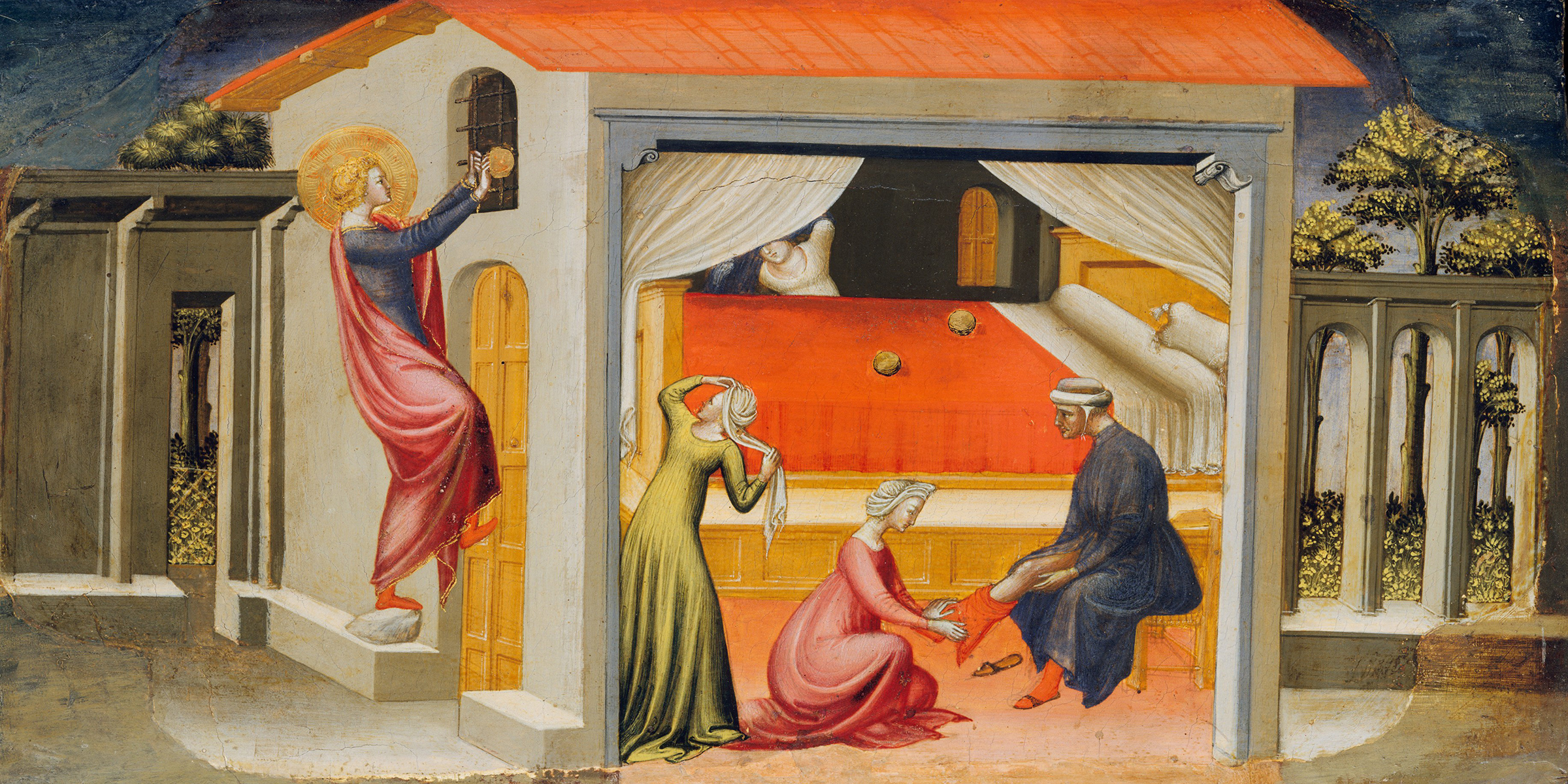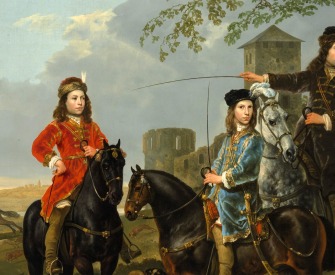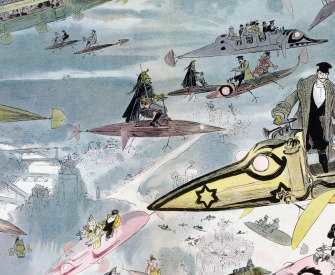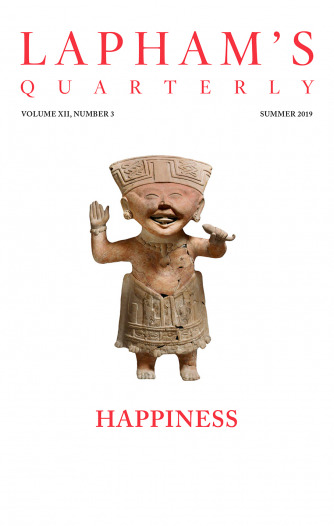Don’t ever wear artistic jewelry; it wrecks a woman’s reputation.
—Colette, 1944Conspicuous Consumption
Edith Wharton follows the money.
Mrs. Peniston disliked giving dinners, but she had a high sense of family obligation and felt it incumbent upon her to light the drawing-room lamps and extract her best silver from the safe-deposit vaults.
Mrs. Peniston’s rare entertainments were preceded by days of heartrending vacillation as to every detail of the feast, from the seating of the guests to the pattern of the tablecloth, and in the course of one of these preliminary discussions, she had imprudently suggested to her cousin Grace Stepney that, as the dinner was a family affair, she might be included in it. For a week the prospect had lit up Miss Stepney’s colorless existence; then she had been given to understand that it would be more convenient to have her another day. Miss Stepney knew exactly what had happened. Her cousin Lily, to whom family reunions were occasions of unalloyed dullness, had persuaded her aunt that a dinner of “smart” people would be much more to the taste of the young couple, and Mrs. Peniston, who leaned helplessly on her niece in social matters, had been prevailed upon to pronounce Grace’s exile. After all, Grace could come any other day; why should she mind being put off?
It was precisely because Miss Stepney could come any other day—and because she knew her relations were in the secret of her unoccupied evenings—that this incident loomed gigantically on her horizon. She was aware that she had Lily to thank for it; and dull resentment was turned to active animosity.
Mrs. Peniston, on whom she had looked in a day or two after the dinner, laid down her crochet work and turned abruptly from her oblique survey of Fifth Avenue.
“Gus Trenor?—Lily and Gus Trenor?” she said, growing so suddenly pale that her visitor was almost alarmed.
“Oh, Cousin Julia…of course I don’t mean…”
“I don’t know what you do mean,” said Mrs. Peniston, with a frightened quiver in her small fretful voice. “Such things were never heard of in my day. And my own niece! I’m not sure I understand you. Do people say he’s in love with her?”
Mrs. Peniston’s horror was genuine. Though she boasted an unequaled familiarity with the secret chronicles of society, she had the innocence of the schoolgirl who regards wickedness as a part of “history,” and to whom it never occurs that the scandals she reads of in lesson hours may be repeating themselves in the next street. Mrs. Peniston had kept her imagination shrouded, like the drawing-room furniture. She knew, of course, that society was “very much changed,” and that many women her mother would have thought “peculiar” were now in a position to be critical about their visiting lists; she had discussed the perils of divorce with her rector and had felt thankful at times that Lily was still unmarried; but the idea that any scandal could attach to a young girl’s name, above all that it could be lightly coupled with that of a married man, was so new to her that she was as much aghast as if she had been accused of leaving her carpets down all summer, or of violating any of the other cardinal laws of housekeeping.
Miss Stepney, when her first fright had subsided, began to feel the superiority that greater breadth of mind confers. It was really pitiable to be as ignorant of the world as Mrs. Peniston!
She smiled at the latter’s question. “People always say unpleasant things—and certainly they’re a great deal together. A friend of mine met them the other afternoon in the park—quite late, after the lamps were lit. It’s a pity Lily makes herself so conspicuous.”
“Conspicuous!” gasped Mrs. Peniston. She bent forward, lowering her voice to mitigate the horror. “What sort of things do they say? That he means to get a divorce and marry her?”
Grace Stepney laughed outright. “Dear me, no! He would hardly do that. It—it’s a flirtation—nothing more.”
“A flirtation? Between my niece and a married man? Do you mean to tell me that with Lily’s looks and advantages, she could find no better use for her time than to waste it on a fat, stupid man almost old enough to be her father?” This argument had such a convincing ring that it gave Mrs. Peniston sufficient reassurance to pick up her work, while she waited for Grace Stepney to rally her scattered forces.
But Miss Stepney was on the spot in an instant. “That’s the worst of it—people say she isn’t wasting her time! Everyone knows, as you say, that Lily is too handsome and—and charming—to devote herself to a man like Gus Trenor unless—”
“Unless?” echoed Mrs. Peniston.
Her visitor drew breath nervously. It was agreeable to shock Mrs. Peniston, but not to shock her to the verge of anger. Miss Stepney was not sufficiently familiar with the classic drama to have recalled in advance how bearers of bad tidings are proverbially received, but she now had a rapid vision of forfeited dinners and a reduced wardrobe as the possible consequence of her disinterestedness. To the honor of her sex, however, hatred of Lily prevailed over more personal considerations. Mrs. Peniston had chosen the wrong moment to boast of her niece’s charms.
“Unless,” said Grace, leaning forward to speak with low-toned emphasis, “unless there are material advantages to be gained by making herself agreeable to him.”
She felt that the moment was tremendous and remembered suddenly that Mrs. Peniston’s black brocade, with the cut jet fringe, would have been hers at the end of the season.
Mrs. Peniston put down her work again. Another aspect of the same idea had presented itself to her, and she felt that it was beneath her dignity to have her nerves racked by a dependent relative who wore her old clothes.
“If you take pleasure in annoying me by mysterious insinuations,” she said coldly, “you might at least have chosen a more suitable time than just as I am recovering from the strain of giving a large dinner.”
The mention of the dinner dispelled Miss Stepney’s last scruples. “I don’t know why I should be accused of taking pleasure in telling you about Lily. I was sure I shouldn’t get any thanks for it,” she returned with a flare of temper. “But I have some family feeling left, and as you are the only person who has any authority over Lily, I thought you ought to know what is being said of her.”
“Well,” said Mrs. Peniston, “what I complain of is that you haven’t told me yet what is being said.”
“I didn’t suppose I should have to put it so plainly. People say that Gus Trenor pays her bills.”
“Pays her bills—her bills?” Mrs. Peniston broke into a laugh. “I can’t imagine where you can have picked up such rubbish. Lily has her own income—and I provide for her very handsomely—”
“Oh, we all know that,” interposed Miss Stepney drily. “But Lily wears a great many smart gowns—”
“I like her to be well dressed—it’s only suitable!”
“Certainly; but then there are her gambling debts besides.”
Miss Stepney, in the beginning, had not meant to bring up this point; but Mrs. Peniston had only her own incredulity to blame. She was like the stiff-necked unbelievers of Scripture, who must be annihilated to be convinced.

Saint Nicholas Providing Dowries, by Bicci di Lorenzo, c. 1433. The Metropolitan Museum of Art, Gift of Coudert Brothers, 1888.
“Gambling debts? Lily?” Mrs. Peniston’s voice shook with anger and bewilderment. She wondered whether Grace Stepney had gone out of her mind. “What do you mean by her gambling debts?”
“Simply that if one plays bridge for money in Lily’s set, one is liable to lose a great deal—and I don’t suppose Lily always wins.”
“Who told you that my niece played cards for money?”
“Mercy, Cousin Julia, don’t look at me as if I were trying to turn you against Lily! Everybody knows she is crazy about bridge. Mrs. Gryce told me herself that it was her gambling that frightened Percy Gryce—it seems he was really taken with her at first. But of course, among Lily’s friends it’s quite the custom for girls to play for money. In fact, people are inclined to excuse her on that account—”
“To excuse her for what?”
“For being hard up—and accepting attentions from men like Gus Trenor—and George Dorset—”
Mrs. Peniston gave another cry. “George Dorset? Is there anyone else? I should like to know the worst, if you please.”
“Don’t put it in that way, Cousin Julia. Lately Lily has been a good deal with the Dorsets, and he seems to admire her—but of course that’s only natural. And I’m sure there is no truth in the horrid things people say; but she has been spending a great deal of money this winter. Evie Van Osburgh was at Céleste’s ordering her trousseau the other day—yes, the marriage takes place next month—and she told me that Céleste showed her the most exquisite things she was just sending home to Lily. And people say that Judy Trenor has quarreled with her on account of Gus; but I’m sure I’m sorry I spoke, though I only meant it as a kindness.”
Mrs. Peniston’s genuine incredulity enabled her to dismiss Miss Stepney with a disdain which boded ill for that lady’s prospect of succeeding to the black brocade; but minds impenetrable to reason have generally some crack through which suspicion filters, and her visitor’s insinuations did not glide off as easily as she had expected. Mrs. Peniston disliked scenes, and her determination to avoid them had always led her to hold herself aloof from the details of Lily’s life. In her youth, girls had not been supposed to require close supervision. They were generally assumed to be taken up with the legitimate business of courtship and marriage, and interference in such affairs on the part of their natural guardians was considered as unwarrantable as a spectator’s suddenly joining in a game. There had, of course, been “fast” girls even in Mrs. Peniston’s early experience; but their fastness, at worst, was understood to be a mere excess of animal spirits, against which there could be no graver charge than that of being “unladylike.” The modern fastness appeared synonymous with immorality, and the mere idea of immorality was as offensive to Mrs. Peniston as a smell of cooking in the drawing room; it was one of the conceptions her mind refused to admit.
She had no immediate intention of repeating to Lily what she had heard, or even of trying to ascertain its truth by means of discreet interrogation. To do so might be to provoke a scene; and a scene, in the shaken state of Mrs. Peniston’s nerves, with the effects of her dinner not worn off, and her mind still tremulous with new impressions, was a risk she deemed it her duty to avoid. But there remained in her thoughts a settled deposit of resentment against her niece, all the denser because it was not to be cleared by explanation or discussion. It was horrible of a young girl to let herself be talked about; however unfounded the charges against her, she must be to blame for their having been made. Mrs. Peniston felt as if there had been a contagious illness in the house, and she was doomed to sit shivering among her contaminated furniture.

Edith Wharton
From The House of Mirth. Shortly after this novel was published, Wharton began an affair with journalist William Morton Fullerton, whom she had met through her friend Henry James. “My life was better before I knew you,” she wrote to Fullerton in a letter. “That is, for me, the sad conclusion of this sad year.” Wharton divorced her husband three years later, after accusing him of adultery. Regarding queries about their affair, she advised Fullerton to “please simply say what you have already said: ‘I know nothing.’ ”




